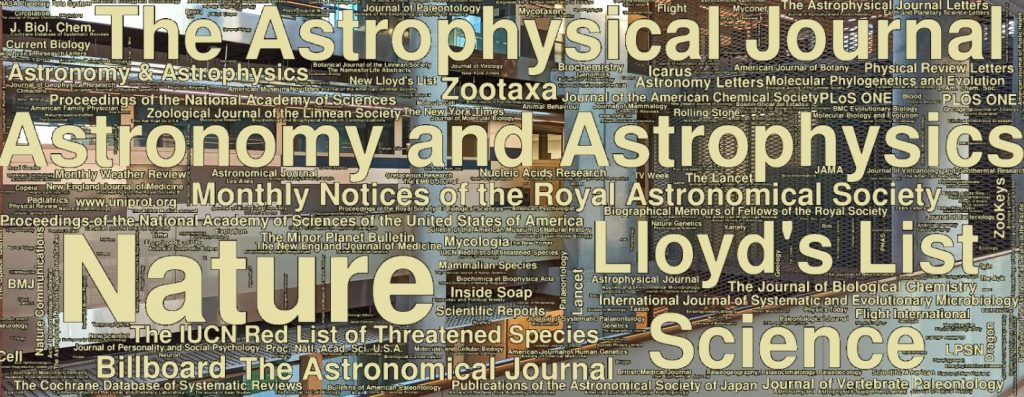
One of the most important factors impacting quality of content in Wikipedia is presence of reliable sources. By following references, readers can verify facts or find more details about described topic. A Wikipedia article can be edited independently in any of over 300 languages, even by anonymous users, therefore information about the same topic may be inconsistent. This also applies to use of references in different language versions of a particular article, so the same statement can have different sources. In this paper authors analyzed over 40 million articles from the 55 most developed language versions of Wikipedia to extract information about over 200 million references and find the most popular and reliable sources.
In the research authors presented 10 models for the assessment of the popularity and reliability of the sources based on analysis of meta information about the references in Wikipedia articles, page views and authors of the articles. Using DBpedia and Wikidata authors automatically identified the alignment of the sources to a specific domain. Additionally, authors analyzed the changes of popularity and reliability in time and identified growth leaders in each of the considered months. The results can be used for quality improvements of the content in different languages versions of Wikipedia. For example, among the most popular scientific journals in references of English Wikipedia are: Nature, Astronomy and Astrophysics, Science, The Astrophysical Journal, Lloyd’s List, Monthly Notices of the Royal Astronomical Society, The Astronomical Journal and others.
Authors of the publication: Włodzimierz Lewoniewski, Krzysztof Węcel, Witold Abramowicz
The paper published in Information 2020, 11(5), 263. Some of the results are available on the BestRef website.